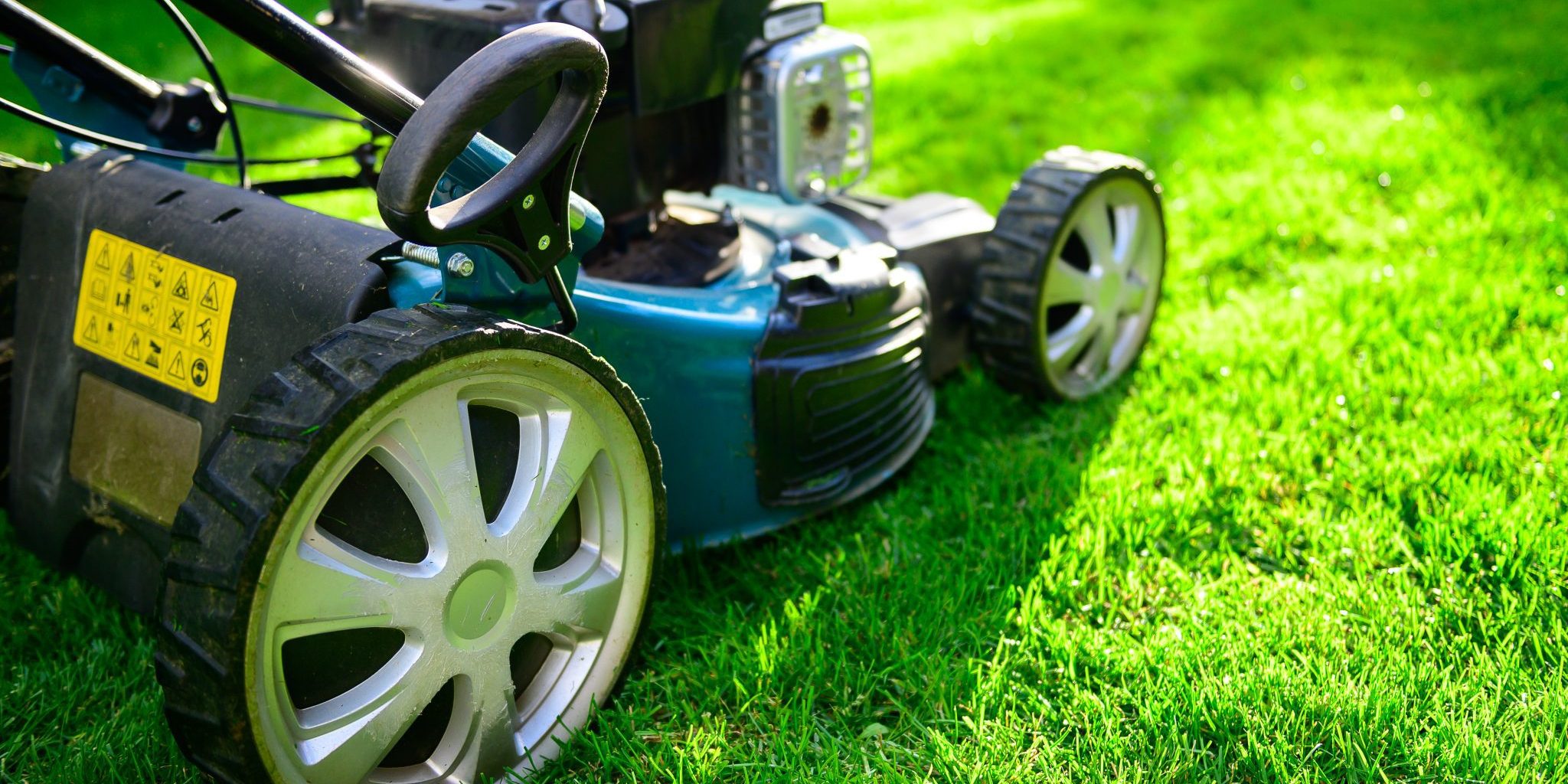Maintaining a well-kept lawn not only enhances the beauty of your home but also contributes to its overall value. Residential lawn mowing is a crucial aspect of lawn care that helps keep your grass healthy, lush, and visually appealing. In this guide, we’ll explore everything you need to know about residential lawn mowing, from choosing the right equipment to mastering the techniques that make a difference.
Understanding Residential Lawn Mowing
Definition and Purpose
Residential lawn mowing involves cutting the grass on your property to a uniform height. This process not only improves the appearance of your lawn but also promotes healthy growth. Regular mowing helps prevent weeds from taking root and keeps your lawn looking pristine throughout the growing season.
Types of Lawn Mowers
When it comes to residential lawn mowing, selecting the right mower is essential. Common types include push mowers, riding mowers, and zero-turn mowers. Push mowers are ideal for smaller lawns while riding mowers and zero-turn mowers are suited for larger properties, offering efficiency and ease of use.
Key Components of Lawn Mowing
Residential lawn mowing requires understanding your mower’s key components, including the blade, engine, and deck. The blade should be sharp for clean cuts, the engine needs regular maintenance to ensure reliability, and the deck should be checked for debris to maintain optimal performance.
Choosing the Right Lawn Mower
Push vs. Riding Mowers
When deciding on a lawn mower for residential lawn mowing, you’ll need to choose between push mowers and riding mowers. Push mowers are more affordable and suitable for small to medium-sized lawns. Riding mowers, on the other hand, are better for large lawns, offering comfort and efficiency for extensive mowing tasks.
Electric vs. Gas-Powered Mowers
Another key decision in residential lawn mowing is whether to opt for an electric or gas-powered mower. Electric mowers are quieter, more environmentally friendly, and require less maintenance. Gas-powered mowers provide more power and are better suited for larger lawns but involve more upkeep and have a higher environmental impact.
Features to Consider
When selecting a mower for residential lawn mowing, consider features such as adjustable cutting height, mulching capabilities, and ease of storage. A mower with these features can enhance your mowing experience and provide better results for your lawn care needs.
Mowing Techniques for a Healthier Lawn
Proper Mowing Height
Maintaining the correct mowing height is crucial in residential lawn mowing. Generally, grass should be cut to about 2.5 to 3 inches high. Cutting too short can stress the grass and lead to weed invasion while mowing too high can lead to a shaggy appearance and reduced lawn health.
Frequency of Mowing
The frequency of residential lawn mowing depends on the growth rate of your grass. During peak growing seasons, you may need to mow weekly. In slower-growing seasons, bi-weekly mowing may be sufficient. Regular mowing ensures your lawn remains neat and healthy.
Mowing Patterns
Changing your mowing patterns is a technique that benefits residential lawn mowing. Alternate between different patterns such as vertical, horizontal, and diagonal to prevent soil compaction and ensure even growth. This practice helps avoid rutting and promotes a healthier lawn.
Seasonal Lawn Mowing Tips
Spring Mowing Tips
Spring is a critical time for residential lawn mowing as your grass begins to grow rapidly. Start by removing any debris and adjusting your mower to a higher setting to avoid scalping the new grass. Gradually lower the cutting height as the season progresses.
Summer Mowing Tips
In summer, residential lawn mowing should be done with care to avoid stressing your lawn. Mow during the cooler parts of the day, such as early morning or late evening, to reduce heat stress. Ensure your mower blades are sharp to prevent tearing the grass.
Fall and Winter Mowing Tips
During fall, continue residential lawn mowing until the grass stops growing. Leave grass slightly longer to help protect the roots from winter frost. In winter, if necessary, keep mowing to a minimum and only clear leaves and debris to prevent damage to the lawn.
Lawn Mower Maintenance and Care
Regular Cleaning
Cleaning your mower regularly is a key aspect of residential lawn mowing maintenance. After each use, remove grass clippings and debris from the mower deck to prevent rust and maintain performance. Regular cleaning also helps extend the life of your equipment.
Blade Sharpening
Sharp blades are essential for effective residential lawn mowing. Dull blades tear the grass rather than cut it cleanly, leading to a ragged appearance and potential lawn damage. Sharpen your blades regularly, ideally at the start of the mowing season and midway through.
Engine Maintenance
Regular engine maintenance is vital for residential lawn mowing. Check the oil level, replace the air filter, and ensure the spark plugs are in good condition. Follow the manufacturer’s maintenance schedule to keep your mower running smoothly and reliably.
Common Lawn Mowing Mistakes to Avoid
Mowing Too Short
One of the most common mistakes in residential lawn mowing is cutting the grass too short. This practice can lead to scalping, reduced root growth, and increased susceptibility to weeds. Stick to the recommended mowing height to maintain a healthy lawn.
Mowing Wet Grass
Mowing wet grass is another mistake to avoid in residential lawn mowing. Wet grass clumps together and can clog the mower, leading to uneven cuts and potential damage to the lawn. Wait until the grass is dry before mowing to achieve the best results.
Ignoring Safety Precautions
Safety is paramount in residential lawn mowing. Always wear protective gear, such as safety glasses and ear protection. Be aware of your surroundings and keep children and pets away from the mowing area to prevent accidents.
Benefits of Professional Lawn Mowing Services
Expertise and Experience
Hiring a professional for residential lawn mowing brings expertise and experience to the table. Professionals have the knowledge and skills to handle various lawn care challenges, ensuring your lawn is mowed to the highest standards.
Time-Saving
One of the main advantages of professional residential lawn mowing is time-saving. Professionals can efficiently complete the job, allowing you to spend your time on other activities or responsibilities.
Consistent Results
Professional residential lawn mowing services offer consistent results. With regular scheduling and expert care, you can expect a well-maintained lawn throughout the year, enhancing the overall appearance and health of your yard.
DIY vs. Professional Lawn Mowing
Pros and Cons of DIY
Residential lawn mowing can be done yourself, offering flexibility and cost savings. However, DIY mowing requires time, effort, and knowledge about proper techniques and equipment maintenance. Consider your availability and willingness to invest in lawn care equipment before opting for DIY.
Pros and Cons of Hiring Professionals
Hiring professionals for residential lawn mowing provides convenience and expert care. While it involves a higher cost, it ensures a well-maintained lawn without the need for personal involvement in the mowing process. Evaluate your budget and preferences when deciding between DIY and professional services.
Cost Considerations
Cost is a significant factor in residential lawn mowing decisions. Compare the costs of purchasing and maintaining lawn care equipment with the fees of professional services. Factor in your lawn size, mowing frequency, and desired level of care when making your choice.
Environmental Impact of Lawn Mowing
Emissions and Pollution
Residential lawn mowing using gas-powered mowers can contribute to emissions and pollution. Gas mowers release carbon monoxide and other pollutants into the air. Consider electric or alternative fuel mowers to reduce your environmental impact.
Sustainable Practices
Adopting sustainable practices in residential lawn mowing can help minimize your ecological footprint. Use mowers with efficient engines, practice grasscycling by leaving clippings on the lawn, and choose eco-friendly products for lawn care.
Alternatives to Traditional Mowers
Explore alternatives to traditional mowers for more sustainable residential lawn mowing. Battery-powered mowers, reel mowers, and robotic mowers offer environmentally friendly options that reduce emissions and promote greener lawn care practices.
Tips for Efficient Lawn Mowing
Best Time of Day to Mow
The best time for residential lawn mowing is early morning or late evening. Mowing during these cooler times reduces heat stress on the grass and allows for better recovery. Avoid mowing during the hottest part of the day to prevent lawn damage.
Efficient Mowing Techniques
Adopting efficient mowing techniques improves your residential lawn mowing experience. Mow in straight lines, overlap each pass slightly, and adjust the mower’s speed to match the grass height and density. These practices help achieve a cleaner, more uniform cut.
Lawn Mower Storage Tips
Proper storage is crucial for maintaining your mower between residential lawn mowing sessions. Store your mower in a dry, sheltered area, and ensure it’s clean and serviced before storage. Proper maintenance and storage extend the lifespan of your equipment.
Lawn Mowing and Landscaping Integration
Coordinating with Other Lawn Care
Integrate residential lawn mowing with other lawn care activities for optimal results. Coordinate mowing with fertilizing, watering, and aerating to enhance the health and appearance of your lawn. A holistic approach to lawn care yields the best outcomes.
Enhancing Curb Appeal
Effective residential lawn mowing contributes to your home’s curb appeal. A well-maintained lawn creates a positive impression and adds value to your property. Combine mowing with landscaping and garden maintenance to achieve a visually appealing exterior.
Integrating with Garden Features
Incorporate residential lawn mowing into your overall garden design. Mow around garden beds, walkways, and other features to maintain a cohesive look. Proper integration with garden elements ensures a tidy and well-kept appearance.
FAQs
1. How often should I mow my lawn?
Mow your lawn weekly during the growing season. Adjust the frequency based on grass growth and seasonal changes.
2. What is the ideal height for mowing grass?
Keep grass at about 2.5 to 3 inches tall. This height promotes healthy growth and prevents weed invasion.
3. Should I mow my lawn when it’s wet?
No, avoid mowing wet grass as it can clog the mower and result in uneven cuts. Wait until the grass is dry.
4. How can I improve the health of my lawn?
Maintain proper mowing height, mow regularly, and use proper lawn care techniques such as watering and fertilizing.
5. What type of mower is best for a small lawn?
For small lawns, a push mower or a compact electric mower is usually sufficient.
6. How do I maintain my lawn mower?
Clean the mower regularly, sharpen the blades, and perform routine engine maintenance according to the manufacturer’s instructions.
7. What are the benefits of professional lawn mowing services?
Professional services offer expertise, time savings, and consistent results, ensuring your lawn is well-maintained year-round.
8. How can I avoid common mowing mistakes?
Avoid mowing too short, mowing wet grass, and ignoring safety precautions. Follow best practices for a healthy lawn.
9. Are electric mowers better for the environment?
Yes, electric mowers are generally more environmentally friendly than gas-powered mowers due to lower emissions and reduced pollution.
10. What should I consider when choosing between DIY and professional mowing?
Consider your budget, time availability, and the level of care you want for your lawn when deciding between DIY and professional services.
Conclusion
In summary, residential lawn mowing is a fundamental aspect of lawn care that contributes significantly to the health and appearance of your yard. By understanding the different types of mowers, employing proper mowing techniques, and maintaining your equipment, you can achieve a well-manicured lawn that enhances your home’s curb appeal. Whether you choose to tackle mowing yourself or hire a professional, applying the tips and practices outlined in this guide will help you maintain a lush and attractive lawn throughout the year.







